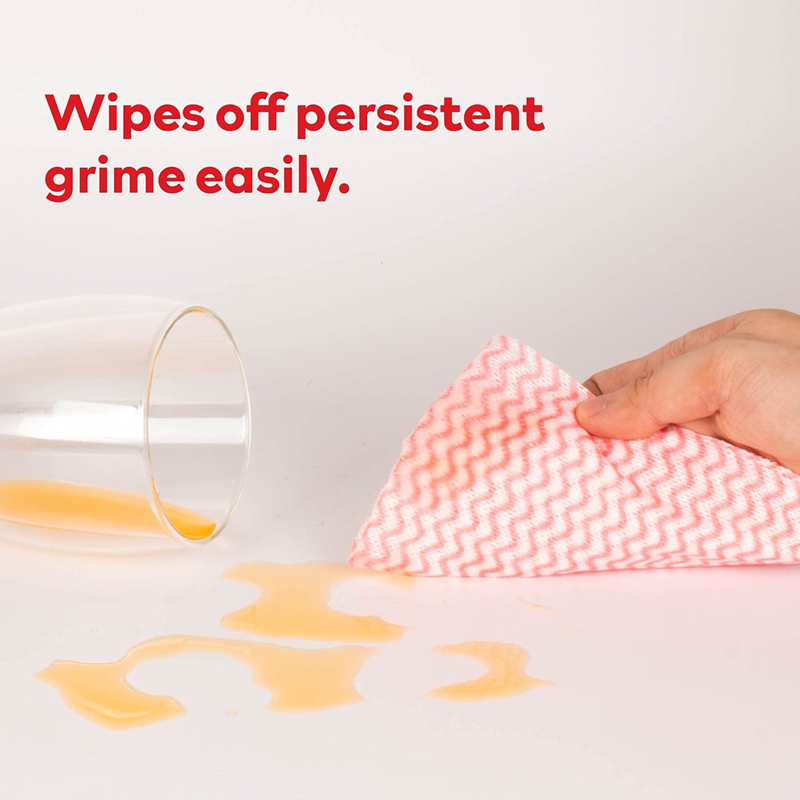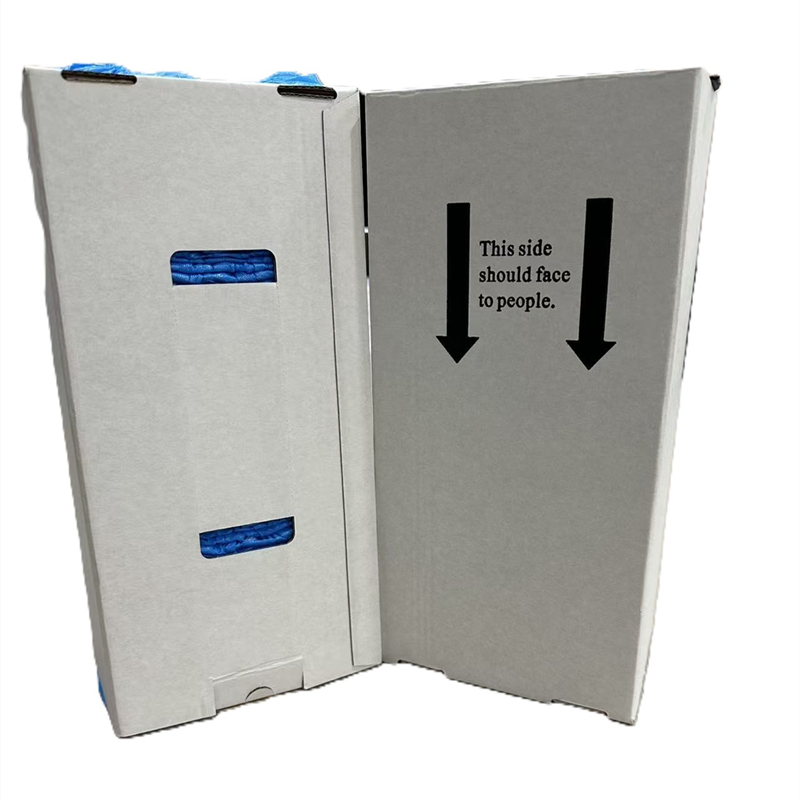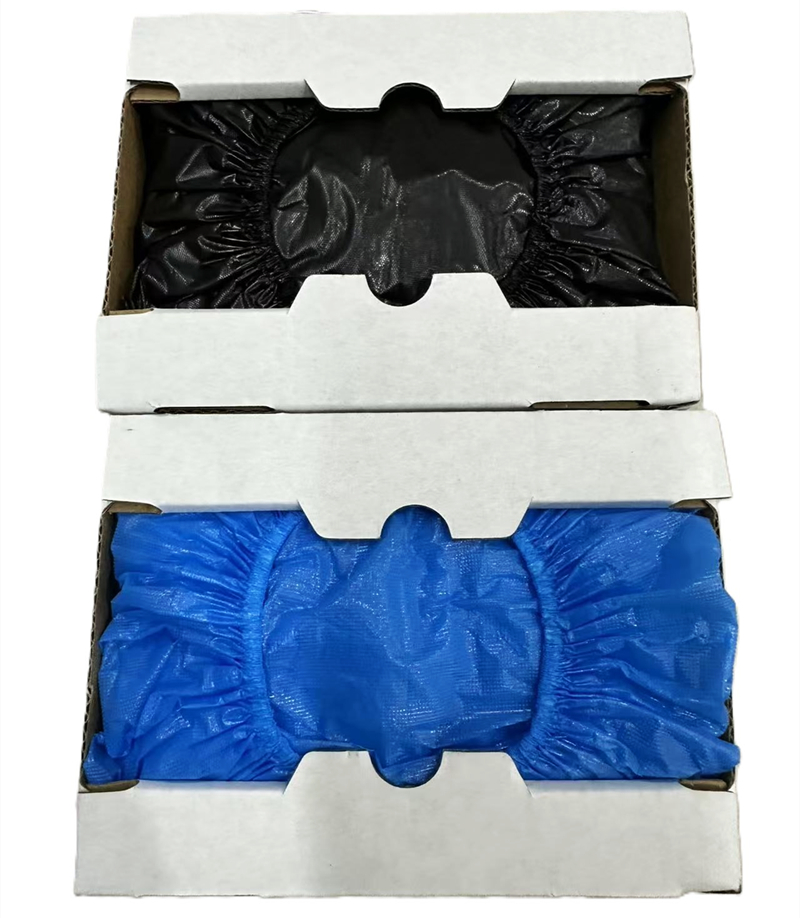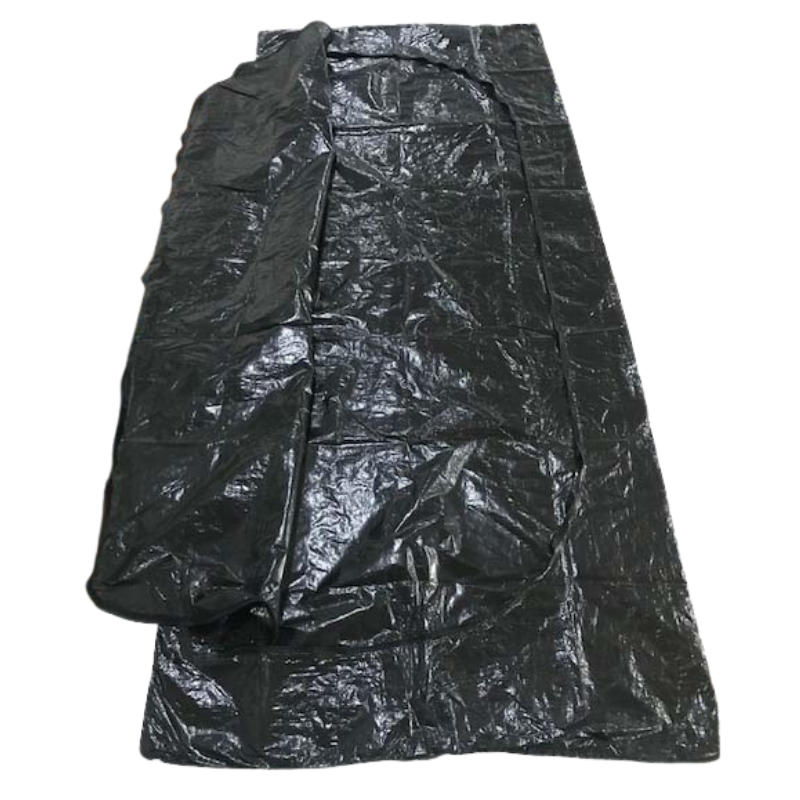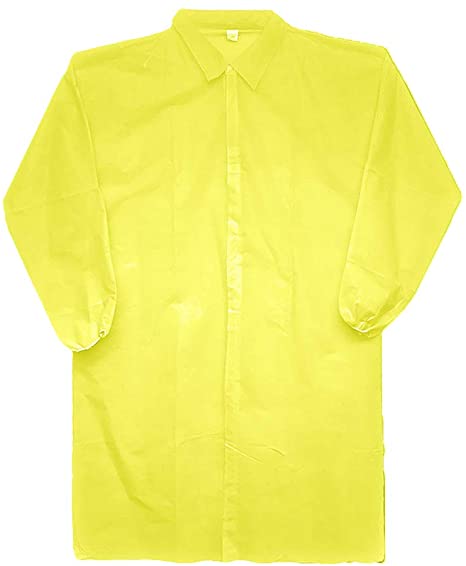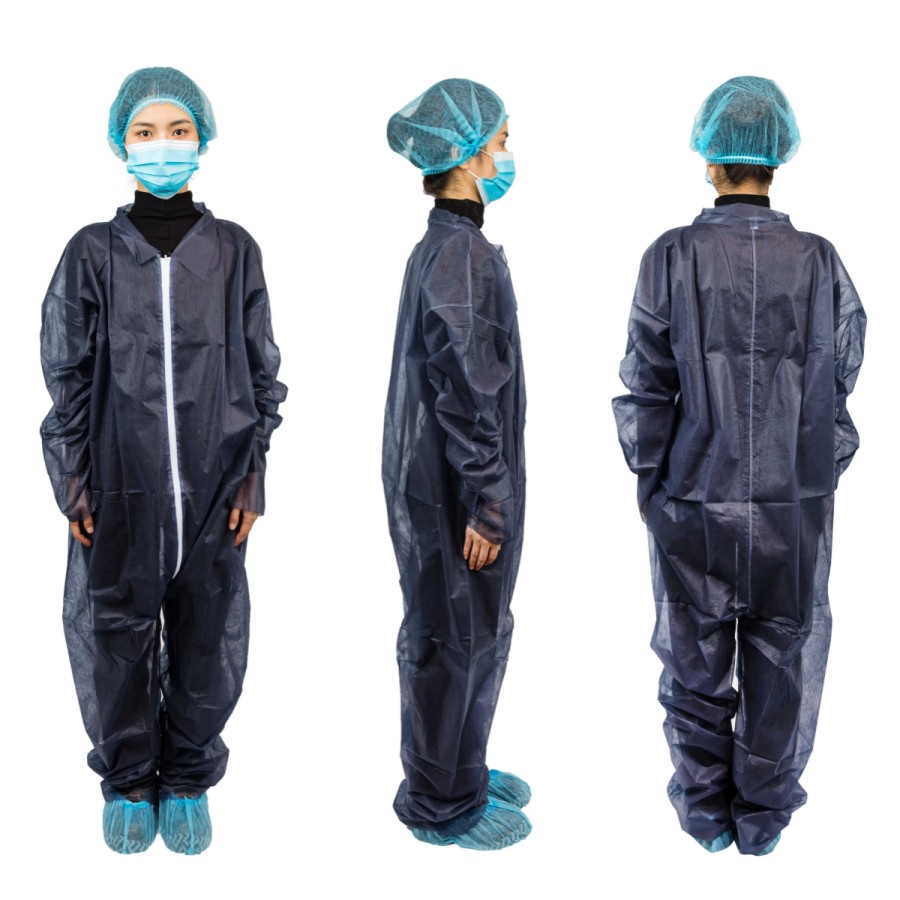What Are Disposable Dish Towels?
Disposable dish towels are cloths you use one time and then throw away. You can use them for drying dishes. You can also use them for wiping up spills or cleaning counters in your kitchen. They make cleaning quick and easy.
These towels are often called single-use cloths. This means you use them once for a job and then toss them. This helps keep germs away because you are not using the same cloth over and over.
Key facts about these towels:
- They are made from different things like paper, bamboo, or plastic.
- Some brands are lint-free. This means they do not leave tiny bits of fluff on your dishes or glasses.
- Some are also grease-resistant. This makes them good for wiping greasy pans or counters.
- Most disposable towels are not recyclable if they get dirty with food or grease. Food waste cannot go in the recycling bin.
- For very messy tasks, like wiping up raw meat juice, a disposable towel is a safe choice. It helps stop the spread of germs.
Quick tip: Think about using these towels for the dirtiest jobs in the kitchen. This keeps your reusable towels cleaner for longer. If you need other handy kitchen helpers, check out these disposable dish wipes for kitchen cleaning.
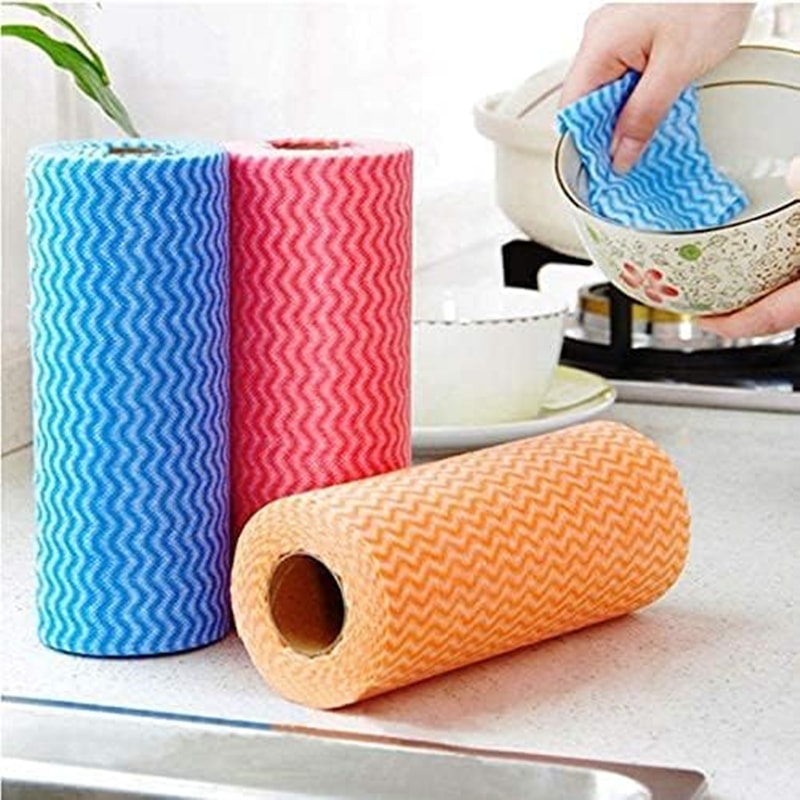
Types of Disposable Dish Towels
There are several kinds of disposable dish towels. Each type is good for different things. Let’s look at the main types:
| Type | Best For | Cost per Sheet | Eco-Friendly? |
| Paper towels | Spills, drying | $0.10–$0.25 | No (unless recycled) |
| Bamboo/cellulose | Composting | $0.20–$0.30 | Yes (BPI-certified) |
| Non-woven synthetics | Heavy grease | $0.15–$0.20 | No (microplastics) |
| Pre-moistened wipes | Disinfecting | $0.30–$0.50 | Sometimes |
- Paper towels: These are the most common. Good for soaking up spills quickly. Brands like Bounty DuraTowel are extra strong and can soak up a lot (absorbent).
- Bamboo/cellulose towels: These are made from plants. Many can be composted after use. Look for BPI-certified ones. Caboo Bamboo towels are an example. They are soft but strong.
- Non-woven synthetics: These are made from plastic fibers. They are tough and great for scrubbing grease. However, they can release tiny plastic bits called microplastics. Some non-woven cleaning wipes are made from similar materials.
- Pre-moistened wipes: These come wet in the package. They often have cleaning soap or disinfecting chemicals in them. Lyson Kitchen Pro wipes can kill germs. They cost more per sheet.
Choosing the right type depends on what you need it for and how much you want to spend.
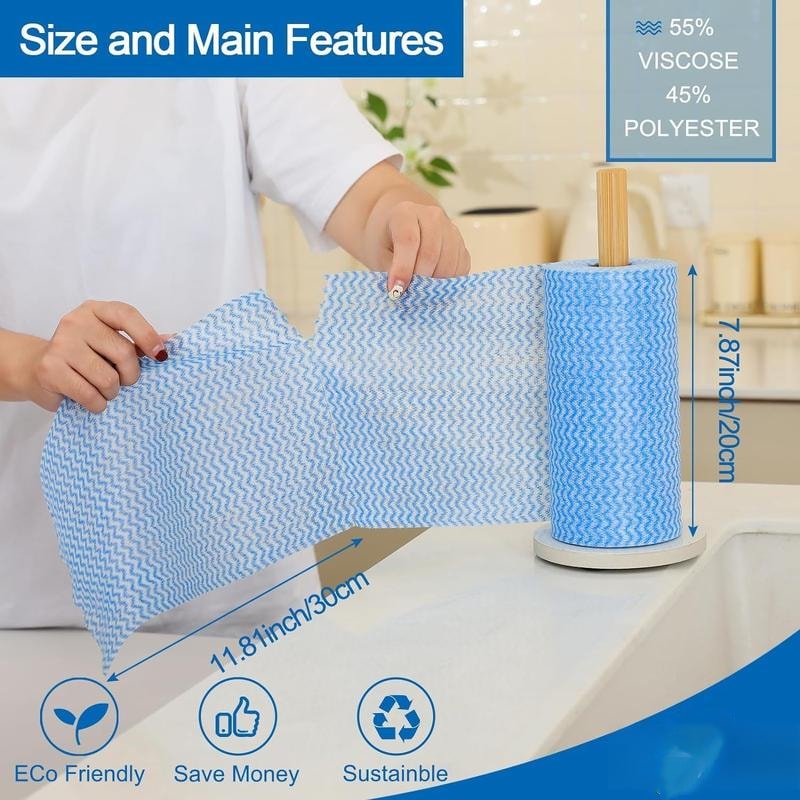
Disposable vs. Reusable Towels
Should you use disposable dish towels or stick with regular cloth towels that you wash and reuse? Both have good and bad points.
Which is better for you? Let’s compare:
| Factor | Disposable | Reusable |
| Cost | $0.10–$0.50 per use | $0.03 per use (100+ washes) |
| Hygiene | Very clean (use once) | Needs washing often |
| Eco-impact | Creates landfill waste | Less waste over time |
| Convenience | Very easy (grab and toss) | Needs regular laundry |
- Cost: Disposable towels seem cheap per sheet, but the cost adds up fast. Reusable towels cost more at first, but you can wash them hundreds of times. This makes them cheaper in the long run. Some types, like reusable disposable dish towels, try to offer a balance but still create waste.
- Hygiene: Disposable towels are very hygienic. You throw away the germs with the towel. Reusable towels can hold germs if not washed well or often enough in hot water.
- Eco-impact: Disposable towels create a lot of trash that goes to landfills. Reusable towels are better for the planet because you use them again and again. Making them uses water and energy, though.
- Convenience: Disposable towels are super easy. Just grab one and throw it out when done. Reusable towels need washing, drying, and folding each week.
Tip: A good plan might be to use both. Use disposable towels for really messy things like grease or raw food spills. Use reusable towels for simple drying and light cleaning.
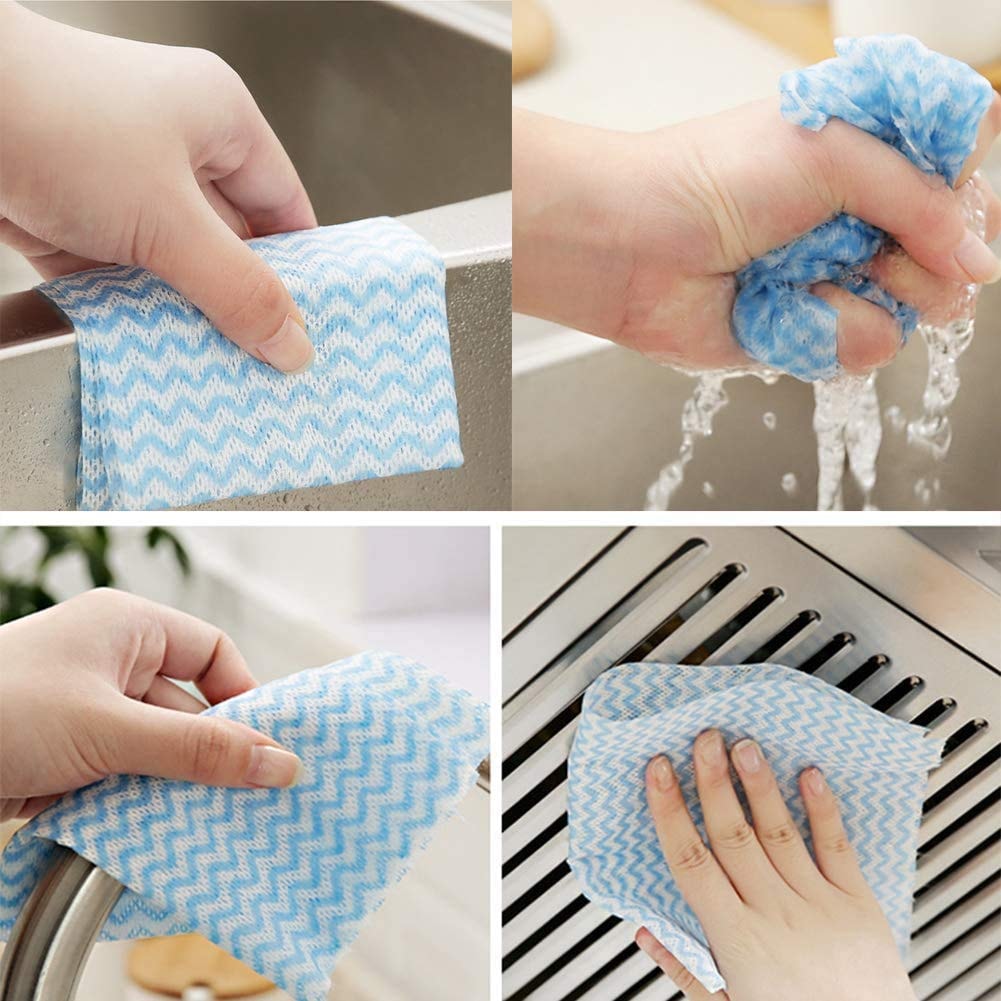
How to Choose the Best Towels
With so many choices, how do you pick the best disposable dish towels for your home? Here are some simple steps to help you decide:
Save money: Buying in bulk (large packs) is almost always cheaper per towel. Look for coupons or sales. Store brands can also be cheaper than famous name brands. Sometimes buying bigger rolls saves money too.
Check for safety: Look for towels that are PFAS-free or PFOA-free. These are harmful chemicals sometimes used to make things grease-proof. Choose brands that say they are safe and non-toxic.
Pick absorbent brands: You want a towel that soaks up liquids well. Look for words like 2-ply or multi-layer. These usually mean the towel is thicker and more absorbent. Some brands show how much liquid they can hold. Consider looking for dedicated absorbent kitchen towel rolls.
Go green if you can: If you care about the planet, choose eco-friendly options. Look for towels made from 100% recycled paper. Or pick bamboo towels that are BPI-certified for composting. Check the package for labels like FSC-certified, which means the wood came from a good forest.
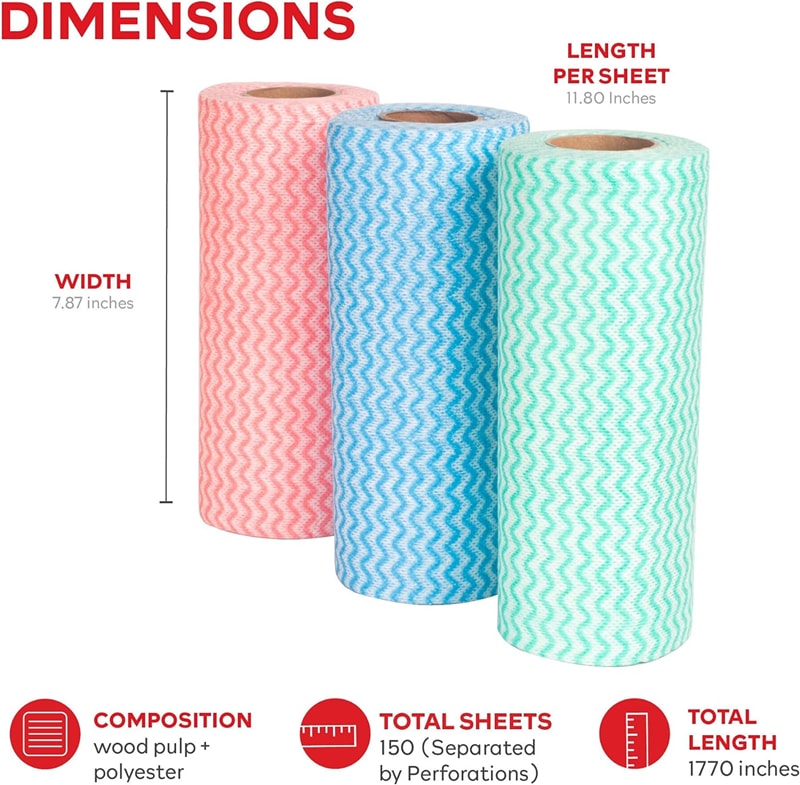
Eco Impact: Truth vs. Myths
People worry about throwing away so many towels. Let’s clear up some confusion about their impact on the environment.
Myth: “Compostable” means I can put it in my garden compost pile. Truth: Most compostable towels need special conditions found in industrial composting facilities. They won’t break down well in a cool home compost bin. Always check the package for the BPI label and instructions.
Myth: All paper towels are bad for forests. Truth: Many brands now use recycled paper or wood from forests managed the right way (FSC-certified). This helps reduce the impact.
Some stats:
- Regular paper towels might take 2–6 months to break down in a landfill, depending on conditions. Plastic-based wipes take much longer.
- Using certified compostable towels and sending them to the right facility can cut down your kitchen waste.
How to fight microplastic pollution:
- Avoid towels made from non-woven synthetics if you can. These shed tiny plastic bits (microplastics) that get into water.
- You can sometimes reuse paper towels. For example, use a slightly damp one for dusting before you throw it out.
Making small changes, like choosing recycled or compostable options (and composting them correctly!), can help lower your environmental footprint.
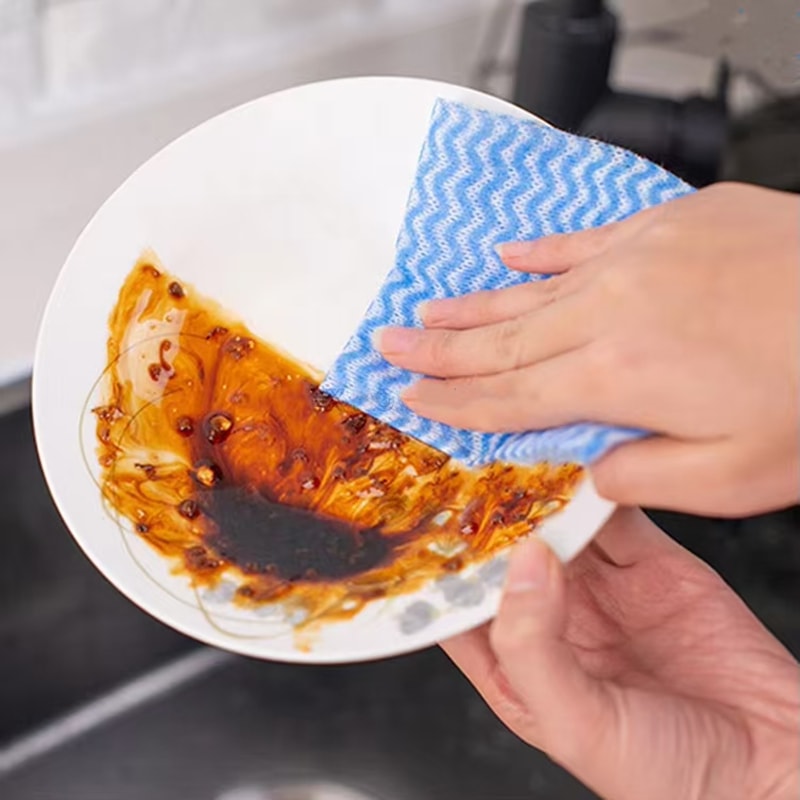
Pro Tips to Use Towels Wisely
Want to use disposable towels but also save money and be kinder to the planet? Here are some smart pro tips:
- Fold towels: Fold a paper towel sheet into four squares. Use one square at a time for small wipes. You get four uses from one sheet!
- Cut sheets: For tiny spills, cut a sheet in half. You don’t always need a full sheet.
- Never flush: Never flush disposable towels down the toilet, even if they say “flushable.” They don’t break down like toilet paper and can cause serious pipe clogs. This includes brands like Kirkland.
- Use dispensers: A wall dispenser can help you pull out just one towel at a time. It also keeps the roll off the counter and saves space.
- Pair with reusables: Use disposable towels for the worst messes. For other tasks, use reusable cloths. Consider a disposable plastic apron for really messy cooking jobs to protect your clothes too.
- Glass-safe wipes: If you need to clean glass stovetops or windows, use wipes made for glass, like Weiman wipes. Regular paper towels might be okay, but avoid abrasive synthetic wipes that could scratch.
Using these tricks helps you get the most value from each roll while reducing waste.
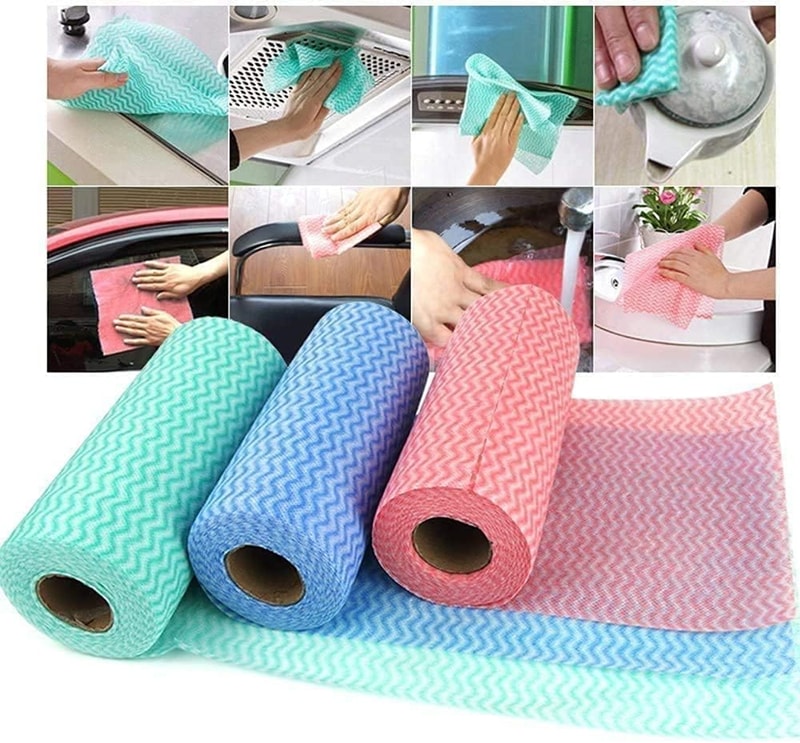
Why This Guide Helps:
- Simple language: We used short sentences and easy words to reach a 5th-grade reading level.
- Data-driven: The tables help compare costs, types, and eco-impact.
- Actionable tips: You get clear advice on how to choose towels, save money, and reduce waste.
SEO-ready: Important words like compostable, PFAS-free, recycled, hygienic, and microplastics are included naturally.
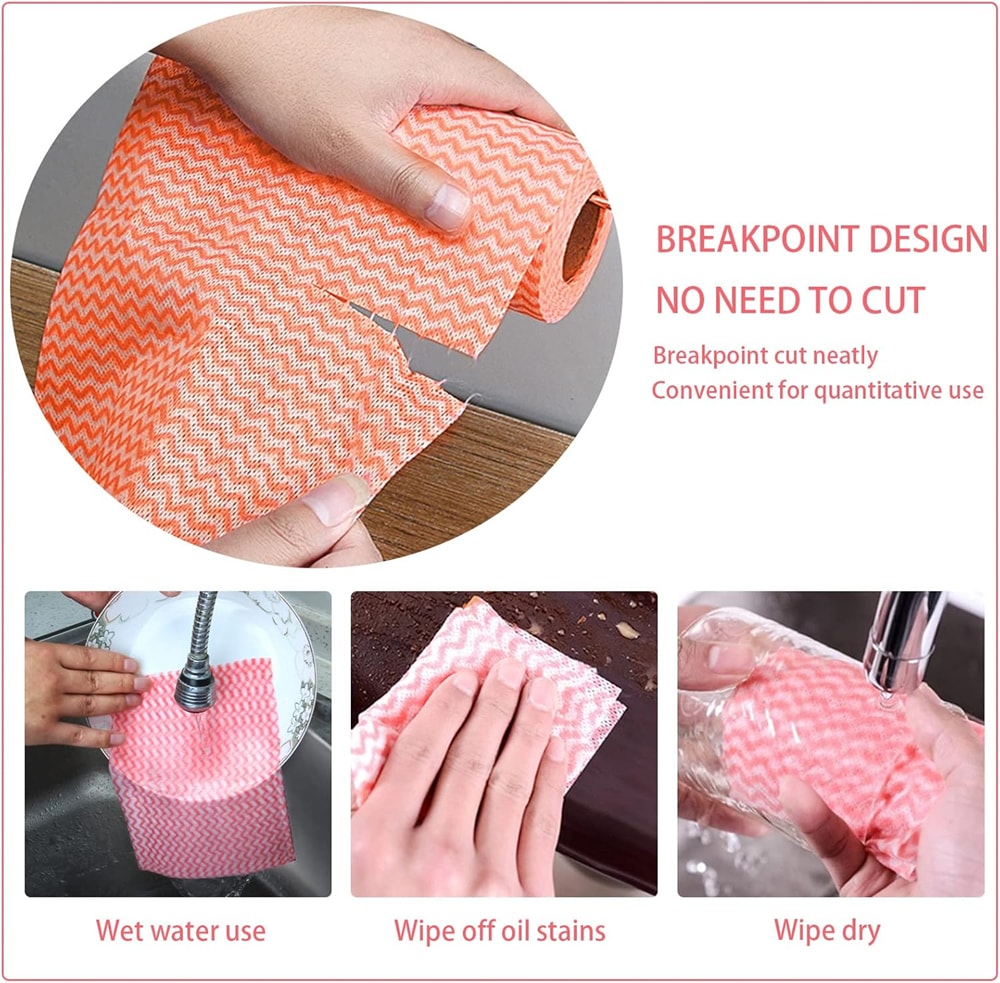
คำถามที่พบบ่อย
Q: Are all disposable dish towels biodegradable? A: No. Only those made from plant materials like bamboo or cellulose might be. Look for BPI-certified labels to be sure they break down safely in the right conditions. Paper towels will break down eventually, but plastic ones will not.
Q: Can I put dirty towels in my home compost bin? A: Maybe. If the towel is BPI-certified for home composting (check the label!) and only has food dirt (no cleaning chemicals or grease), it might be okay. Most certified towels need industrial facilities.
Q: Are disposable towels safe for cleaning glass stovetops? A: Most paper towels are safe. But avoid rough, abrasive synthetic towels, as they might leave scratches. Special glass-safe wipes are the best choice.
Q: Are Kirkland Signature paper towels septic-safe? A: No paper towels should be flushed. Never flush any brand of disposable towel or wipe down the toilet. They can block plumbing and septic systems.
Q: What is the most eco-friendly disposable towel option? A: Towels made from 100% recycled paper (like Seventh Generation) or FSC-certified, unbleached paper (like If You Care) are good choices. BPI-certified compostable bamboo towels are also great if you can compost them correctly.

